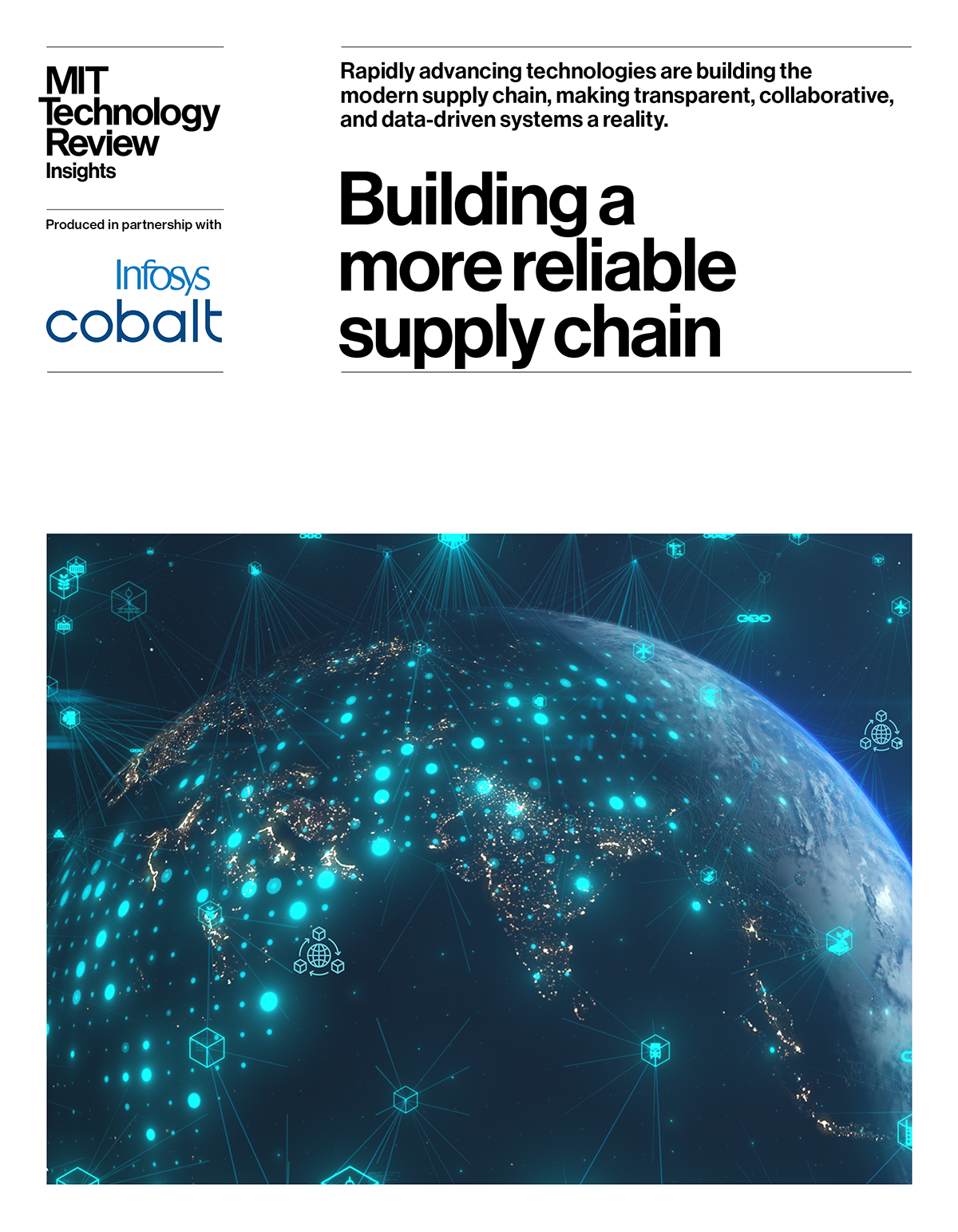Sponsored
Building a more reliable supply chain
Rapidly advancing technologies are building the modern supply chain, making transparent, collaborative, and data-driven systems a reality.
In partnership withInfosys Cobalt
In 2021, when a massive container ship became wedged in the Suez Canal, you could almost hear the collective sigh of frustration around the globe. It was a here-we-go-again moment in a year full of supply chain hiccups. Every minute the ship remained stuck represented about $6.7 million in paralyzed global trade.
The 12 months leading up to the debacle had seen countless manufacturing, production, and shipping snags, thanks to the covid-19 pandemic. The upheaval illuminated the critical role of supply chains in consumers’ everyday lives—nothing, from baby formula to fresh produce to ergonomic office chairs, seemed safe.
For companies producing just about any physical product, the many “black swan” events (catastrophic incidents that are nearly impossible to predict) of the last four years illustrate the importance of supply chain resilience—businesses’ ability to anticipate, respond, and bounce back. Yet many organizations still don’t have robust measures in place for future setbacks.
In a poll of 250 business leaders conducted by MIT Technology Review Insights in partnership with Infosys Cobalt, just 12% say their supply chains are in a “fully modern, integrated” state. Almost half of respondents’ firms (47%) regularly experience some supply chain disruptions—nearly one in five (19%) say they feel “constant pressure,” and 28% experience
“occasional disruptions.” A mere 6% say disruptions aren’t an issue. But there’s hope on the horizon. In 2024, rapidly advancing technologies are making transparent, collaborative, and data-driven supply chains more realistic.

“Emerging technologies can play a vital role in creating more sustainable and circular supply chains,” says Dinesh Rao, executive vice president and co-head of delivery at digital services and consulting company Infosys. “Recent strides in artificial intelligence and machine learning, blockchain, and other systems will help build the ability to deliver future-ready, resilient supply chains.”
This content was produced by Insights, the custom content arm of MIT Technology Review. It was not written by MIT Technology Review’s editorial staff.
Deep Dive
Humans and technology
Building a data-driven health-care ecosystem
Harnessing data to improve the equity, affordability, and quality of the health care system.
Let’s not make the same mistakes with AI that we made with social media
Social media’s unregulated evolution over the past decade holds a lot of lessons that apply directly to AI companies and technologies.
Open-sourcing generative AI
Stay connected
Get the latest updates from
MIT Technology Review
Discover special offers, top stories, upcoming events, and more.
